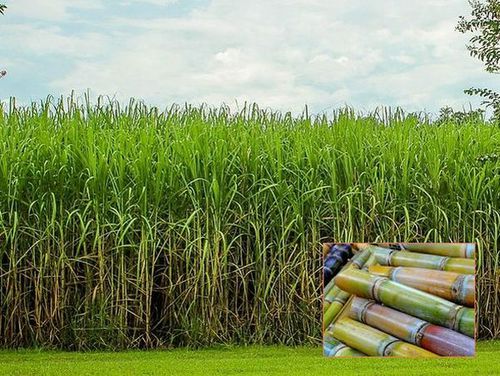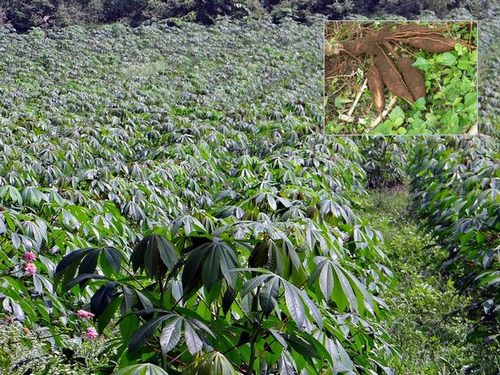Tohoku and the World: 5 Years after the Great East Japan Earthquake and Tsunami
April 6, 2016
It's been five years since the Great East Japan Earthquake. This time we will listen to stories from guest speakers Robin Lewis, International Coordinator in Disaster Relief for Peace Boat, and Angela Ortiz, Representative Director of OGA for Aid, who dedicated themselves to disaster reconstruction in the affected region.
Jump in, listen to their stories and exchange ideas with each other!
To join us, please sign up from the following web link.
http://www.meetup.com/Tokyo-Sustainability-Meetup/events/229782012/
Thailand to Produce Biofuel Using Japanese Biotechnology

Sugarcane field and harvested sugarcane (lower right).
Copyright Smart Japan All Rights Reserved.
Biotechnologies from Japanese companies will play an important role in Thailand, where ethanol is produced from domestic plant material and added to gasoline. Below, we share a report on an initiative in Thailand to utilize Japanese biotechnologies for ethanol production. This article is a summary of the original report, reproduced with permission from Smart Japan. Smart Japan is an online media services provider specializing in energy conservation, storage, and generation.
The Thai government is implementing a policy to add ethanol to gasoline to help decrease the net amount of gasoline consumption. In 2013, it banned sales of ethanol-free gasoline. People in Thailand are now using gasohol, ethanol-added gasoline, of which there are three classes according to blending ratio: E10 (containing 10 percent ethanol), E20 and E85.
As of 2013, when the government launched this new policy, there were already 21 ethanol production plants operating in Thailand. The primary raw materials are cassava and molasses from sugarcane. In 2014, fuel-grade ethanol production reached one million kiloliters per year (3,000 kiloliters per day), the fifth highest in the world.
The Thai government is aiming to achieve major biofuel goals by 2022. For example, Thailand aims to increase consumption of bioethanol to 9,000 kiloliters per day, or three times as much as present consumption, by 2022. Moreover, the government has set a highly ambitious production goal for advanced biofuel. It aims to produce 25,000 kiloliters of advanced biofuels per day, which is close to three times as much as the bioethanol consumption goal.
Advanced biofuels are fuels made from cellulosic biomass, from which it is harder to extract fuel, rather than from molasses or starch, which ferment easily. At present, no country is commercially manufacturing advanced biofuel, because its production cost is too high.
When sugar is extracted from sugarcane, bagasse, a cellulosic food residue, is left over in addition to the leftover molasses. Bagasse is a complex of cellulose and woody lignin, which does not ferment as is. Therefore, it is hard to extract ethanol from bagasse. While 60 to 80 percent of bagasse is used as boiler-fuel in sugar factories, the rest is disposed of as waste.
Japanese biotechnologies have the potential to help solve these two issues. Japan's New Energy and Industrial Technology Development Organization (NEDO) says that it aims to establish a technology to produce bioethanol using sugarcane-derived-bagasse at a cost of 18 Thai baht per liter. As of 2012 when the numerical target was set, 18 Thai baht per liter was equivalent to 49 yen (about 41 US cents) per liter. NEDO projects that the target of 18 Thai baht per liter will be achievable when the production scale grows to 17,000 kiloliters per year.
NEDO announced on August 31, 2015, that the bioethanol plant it built in Saraburi Province in Thailand started its pilot operation. The project budget from fiscal 2012 to 2017 totals approximately 1.2 billion yen (US$10million), including one billion yen (US$8.3million) funded by NEDO.
The plant, with a processing capacity of 1,300 tons of bagasse per year, was built on a 300 square-meter lot adjacent to the Saraburi sugar manufacturing plant of Thai Roong Ruang Energy, a major sugar manufacturer in Thailand, and thus has no shortage of raw material, according to NEDO.
The plant primarily employs two techniques. One is onsite enzyme production, which involves production of a cellulase enzyme for breaking down cellulose from cellulase-producing filamentous fungi in the factory.
The other technique is a simultaneous saccharification and fermentation process, in which the production of glucose and ethanol is carried out at the same time in the same tank. The raw material is moved to a saccharification/fermentation tank after first being pretreated and separated into woody lignin and cellulose. Next, the cellulase enzyme is added to produce glucose from the cellulose, and yeast is added to produce ethanol from the glucose.
The completed plant has an annual production capacity of 100 kiloliters. According to NEDO, its pilot operation will generate the data required to design a commercial plant and achieve a production cost of 18 Thai baht per liter, paving the way for Japanese companies to build and run commercial plants in Thailand.
Japanese companies are also playing a role in developing an intermediate technology between the existing molasses-based bioethanol and advanced biofuels, which have not yet achieved commercial production. The key is cassava.

Cassava field and harvested cassava root (upper right).
Copyright Smart Japan All Rights Reserved.
Thailand boasts the world's fourth highest cassava production, exceeding 20 million tons (weight by root content). Cassava produces an edible potato-like root from which starch-rich tapioca is produced. There are many cassava-based bioethanol plants in operation in Thailand, with a total production capacity of approximately the same as Thai molasses-based bioethanol production.
This cassava-based bioethanol, however, poses one problem. That is, the starch fermented and converted to bioethanol could otherwise be made into tapioca.
Therefore, NEDO and the Thai National Ministry of Science, Technology and Innovation launched a demonstration plant to produce bioethanol using cassava pulp in April 2014.
The demonstration plant takes advantage of cassava pulp, which is a tapioca residue left after the starch is extracted from the cassava root. The leftover starch in the cassava pulp is processed using a high-temperature fermentation yeast developed by the two organizations.
The production plant can convert 1,000 tons of dry cassava pulp into 80 kiloliters of bioethanol annually. This project, too, will generate the data necessary to develop a commercial plant.
Source: Smart Japan (in Japanese)
Japan for Sustainability (JFS) is a non-profit communication platform to
disseminate environmental information from Japan to the world. We are
grateful that people in 191 countries have found an interest in our free
e-mail publications, and will continue to do our best to deliver useful
information to our readers all around the globe.
Please feel free to forward this message to your colleagues and friends
wherever the Internet can reach. If you know colleagues or friends there
with an interest in sustainability, please do forward them one of our
newsletters and invite them to try our service. To subscribe for JFS
Newsletters, visit www.japanfs.org/en/newsletter/subscribe.html

If you find our information and activities unique and valuable,
we appreciate your support!
http://www.japanfs.org/en/join/donation.html

Use this form http://www.japanfs.org/en/newsletter/subscribe.html to
remove your email address from our mailing list.

We welcome your comments. Please send them to: info@japanfs.org

Japan for Sustainability (JFS)
 |  |  |
Copyright (c) 2016, Japan for Sustainability. All Rights Reserved.
